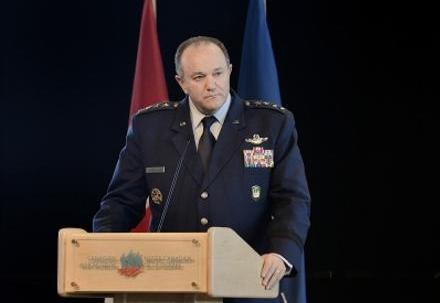 Moscow’s stealth annexation of Crimea was accompanied by a highly co-ordinated cyber campaign aimed at civilian and military targets — a brutally effective effort, said U.S. Gen. Phillip Breedlove, who is visiting Canada this week.
Moscow’s stealth annexation of Crimea was accompanied by a highly co-ordinated cyber campaign aimed at civilian and military targets — a brutally effective effort, said U.S. Gen. Phillip Breedlove, who is visiting Canada this week.
Where a bygone era of warfare saw railways, bridges, factories and command posts bombed to ashes, these days servers and websites are hacked and forced to crash, putting a grinding halt to the wheels of government and civilian life.
“Clearly, cyber was a huge part of what Russia has done,” Breedlove said.
“When they took Crimea, cyber was a part of a well-planned, total decapitation of Crimea from the command and control structure of Ukraine. Ukraine was absolutely disconnected from being able to do anything with their forces in that area. Cyber was one of three tools used, and used quite exquisitely.”
It’s a stark warning for NATO, which has been slow to fully embrace cyberwarfare concepts and is still debating internally where the line is between a defensive and offensive posture.
The issue is so urgent and the stakes so high that staff are working furiously to come up with a position and recommendations for NATO leaders before they gather in Britain for a summit meeting in September.
“I think we will take up cyber at the summit,” Breedlove said. “That question will have to be addressed. . . .”
NATO developed a cyber defence policy last year, but it’s “relatively new” and only a first step, Breedlove conceded.
“The bottom line is: Good work has started. I believe more work needs to be done.”
Image: SACEUR Gen. Philip Breedlove, May 5, 2014 (photo: Corporal Andrew Wesley/Canadian Armed Forces)
